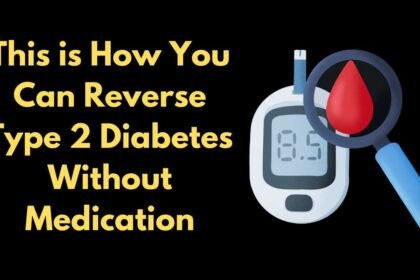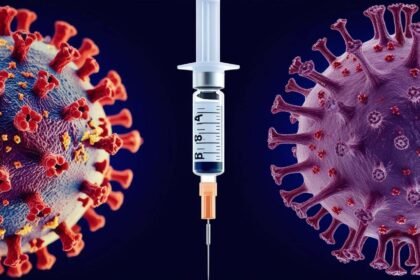Coffee, a staple beverage enjoyed by billions worldwide, has long been the subject of both praise and criticism.
Whether it’s your morning pick-me-up or a relaxing afternoon ritual, coffee’s impact on health has intrigued researchers for decades.
Recent studies suggest that coffee might do more than energize your day — it could extend your healthspan and add nearly two years of healthy living.
The Science Behind Coffee and Longevity
A groundbreaking review from the University of Coimbra in Portugal, recently published in Ageing Research Reviews, analyzed over 50 studies on coffee’s effects on lifespan.
The findings suggest that regular coffee consumption could contribute an average of 1.8 additional years of healthy living.
This intriguing conclusion stems from coffee’s unique blend of bioactive compounds, including antioxidants and polyphenols, which are believed to slow down aging processes.
Dr. Rodrigo Cunha, the study’s lead author, emphasized that coffee is the most consumed beverage globally after water, warranting a detailed investigation into its health impacts.
According to Dr. Cunha, moderate coffee intake decreases the risk of various chronic diseases such as type 2 diabetes, liver disease, and metabolic syndrome, making it a potential ally in promoting healthy aging.

Starbucks K-Cup Coffee Pods
Starbucks K-Cup Coffee Pods, Medium Roast Coffee, Pike Place Roast for Keurig Brewers, 100% Arabica, 4 boxes (96 pods total)
Coffee’s Role in Slowing Aging
So, how exactly does coffee contribute to a longer healthspan? Researchers have identified several mechanisms:
- Antioxidants: Chlorogenic acids in coffee act as powerful antioxidants, reducing cellular damage caused by free radicals. This process helps cells recover more effectively from harmful stimuli, such as inflammation.
- Caffeine’s Stress-Reduction Role: Caffeine interacts with receptors in the brain to mitigate stress signals. By reallocating cellular resources for optimal function, caffeine helps maintain cell quality over time.
- Polyphenols: These bioactive compounds in coffee are linked to reducing inflammation and regulating insulin production, both of which are crucial for preventing age-related diseases like diabetes and heart disease.
While these findings are promising, researchers caution that more work is needed to determine who benefits most from coffee and how factors like brewing methods and genetic predispositions influence its effects.
Read More: This Is Why Your Coffee Makes You Take Frequent Trips to the Toilet
Evidence of Coffee’s Health Benefits
In addition to reducing the risk of chronic diseases, coffee consumption has been associated with the prevention of conditions common among older adults, including:
- Heart disease
- Stroke
- Certain cancers
- Dementia
- Major depression
- Frailty
A separate review involving 85 studies worldwide supported these findings, highlighting coffee’s ability to add 1.84 years of life without serious illness.
However, experts like Dr. Shannon Kilgore from Stanford University note that while coffee’s benefits are compelling, the precise mechanisms remain unclear.

Ninja Hot and Iced Coffee Maker
Ninja Hot and Iced Coffee Maker, Single Serve Coffee Maker and Drip Coffee Machine, DualBrew Pro Specialty 12-Cup with K-Cup Combo, Includes Permanent…
Moderation Is Key
The benefits of coffee are most pronounced when consumed in moderation. Both the European Food Safety Authority and the U.S. Food and Drug Administration (FDA) recommend up to 400 milligrams of caffeine daily — roughly equivalent to four to five 8-ounce cups of coffee.
Excessive caffeine intake can lead to adverse effects, including heart palpitations, high blood pressure, and anxiety.
For those sensitive to caffeine, decaffeinated options still offer some health benefits, though they contain lower levels of bioactive compounds.
Dr. Cunha advises older adults to stick to their usual coffee habits rather than increasing consumption, as overconsumption may negate the potential health benefits.
Considerations for Getting the Most Out of Coffee
To maximize the health benefits of your daily brew, experts recommend the following:
- Stick to Moderate Consumption: Aim for 2-3 cups of coffee per day, as studies often cite this range as optimal for health benefits.
- Choose Quality Beans: Opt for coffee that is free from pesticides and responsibly farmed. The source and quality of your coffee can significantly impact its health effects.
- Limit Additives: Avoid excessive sugar and high-fat creamers. Instead, try natural sweeteners like honey or monk fruit for a healthier alternative.
- Mind Your Sensitivities: If coffee causes side effects like acid reflux, anxiety, or insomnia, consider reducing your intake or switching to decaffeinated options.
- Pay Attention to Brewing Methods: The way coffee is brewed can influence its chemical composition. For example, filtered coffee may reduce cholesterol-raising compounds compared to unfiltered options like French press.
- Be Mindful of Caffeine Sources: Remember that caffeine isn’t exclusive to coffee. It’s also found in tea, chocolate, energy drinks, and some medications. Monitor your total caffeine intake to avoid overconsumption.
Beyond the Cup: A Holistic Approach to Healthy Aging
While coffee can play a role in promoting longevity, it is not a magic bullet. Registered dietitian Monique Richard emphasizes the importance of a well-rounded approach to health.
Factors such as diet, exercise, stress management, and social connections all contribute to overall well-being and longevity.
“Coffee studies are like egg studies — one day it’s good for you, the next it’s not,” says Richard. To navigate these conflicting messages, she recommends evaluating your own body’s response to coffee and consulting with a healthcare professional if needed.
Dr. Scott Kaiser, a geriatrician, echoes this sentiment, encouraging individuals to focus on the broader picture of healthy aging. “It’s not just about living longer but living better,” he says. Coffee, when enjoyed as part of a balanced lifestyle, can be one piece of the puzzle in achieving this goal.
Final Thoughts
The latest research on coffee’s impact on healthspan offers encouraging insights for coffee lovers. With its unique combination of antioxidants, polyphenols, and other bioactive compounds, coffee has the potential to support healthier, longer lives. However, as with all things, moderation and mindfulness are key.
Enjoy your daily cup of coffee, but remember to take a holistic approach to your health. Pair your coffee habit with nutritious foods, regular physical activity, and meaningful social connections to truly optimize your healthspan and quality of life.
As research continues to uncover the mysteries of this beloved beverage, one thing is clear: coffee is more than just a drink — it’s a potential ally in the quest for healthy aging.












